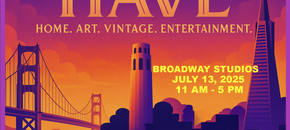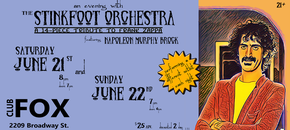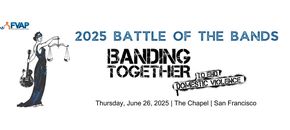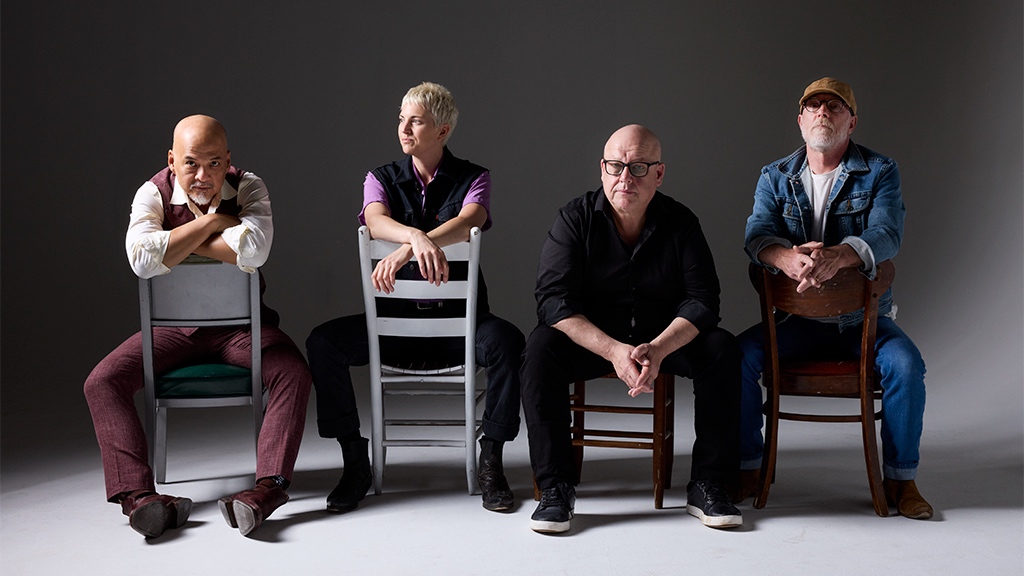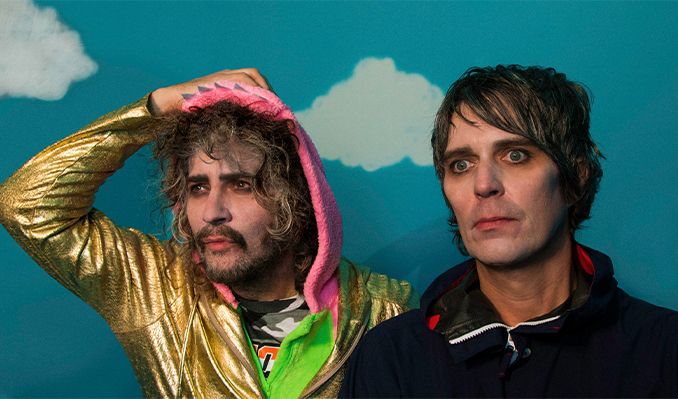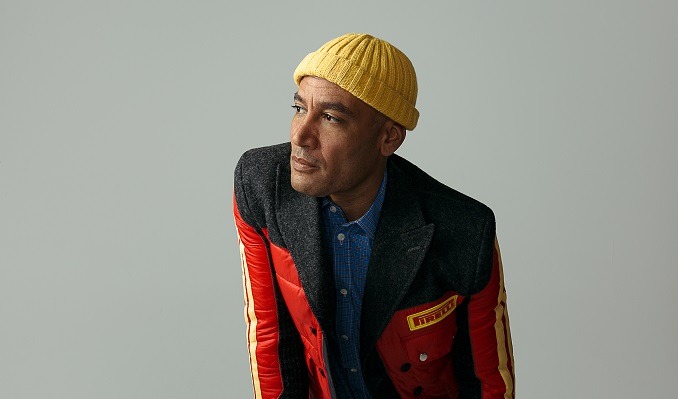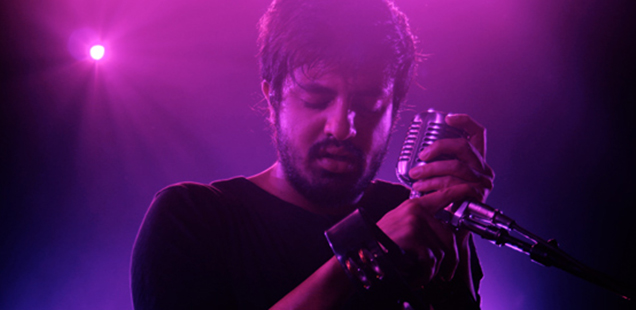Information Retrieved: Pinback Discusses Current Tour and Future Projects
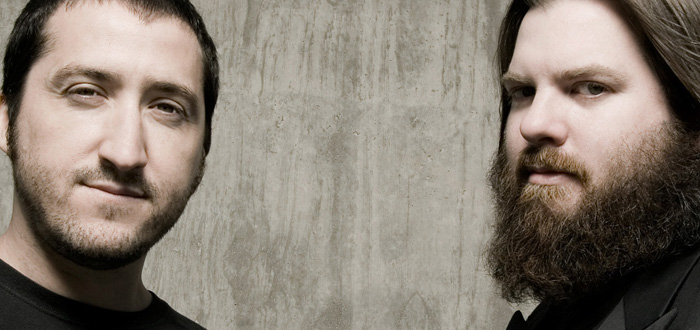
San Diego indie rockers, Pinback, have found a way to produce consistantly solid albums consisting of bruising, beautiful bass lines compounded with precise drum machines, ambiguously introspective lyrics and spacey guitars for over fifteen years.
Their sound is mesmerizing and doesn’t waver too far into the spectrum of beauty or darkness, but balances perfectly in between. With their latest album, Information Retrieved, the band has been touring avidly and has found time to play a handful of shows along California’s coast, including a stop at Bimbo’s 365 Club on January 19th. We caught up with bass player Armistead Burwell Smith IV (Aka Zack Smith) to talk about the current state of music, being a family man in a band, and Getty Lee.
Pinback seems to play San Francisco quite often. Is it safe to say it’s your second home in California?
It’s one of those places you feel at home. There are a couple places like that in the country. For me personally I’d love to live there but it’s too expensive, but I love playing all the clubs there- Bottom of the Hill, the Fillmore, and Bimbos. It’s also close to San Diego, which makes it easy for us to come up.
There are also some good stops in between, like Santa Barbara and San Luis Obispo.
On this current tour, we’re only playing one place we haven’t played, Merced. So hopefully that goes well. The smaller towns are sometimes a lot more energetic. It’s almost like they appreciate it more because they are deprived, it doesn’t matter what you play.
Are you familiar with the stencils of your logo strewn about the city?
I didn’t know about that. Sometimes labels do street promos, or it could be a random thing. I think a few of those things are going around in Brooklyn.
Pinback has been know as a model of consistency, producing really tight rhythms with beautiful and melodic harmonies. Do you have a formula for writing songs or has it just gotten easier throughout the years?
Our formula is whatever works at the moment. But it’s sort of whatever happens in the moment, and we’re so familiar with each other we don’t have to force things. We try to mix it up but still try to have our sort of signature sound. We’re all set with kids now, I’ve got one and Rob has two. We are very start and stop, and life is pretty big, so we just do it when we can.
Your last album, Information Retrieved, seems like a much more grown up album. Do you think your kids and families had an affect?
For sure. I think there are negatives and positives with that just like with anything. The negative is the whole start and stop thing, it’s hard to get into a consistency role but at the same time you’ve got these kids that are influencing your lives and making you think differently. Your life affects your music and hopefully in a positive way.
It also took five years to make.
People like to point that out but really it took one year longer than our other albums. Rob and I had three children between us, we moved, and we toured our ass off at the same time. The way the music business is now, it stinks because for people like us we want to create the best record we can. The way Ipods and Spotify work it really diminishes the role of an album. Everyone is into streaming, which makes us go on the road more, and we’re all in our forty’s. We’ve had the same fans for years, and the new generations just streams everything and it makes things watered down. I feel like the ‘album’ has sort of been lost, there’s a few kids that are getting into vinyl, which is having a resurgence, but mostly it’s streaming.
We love making great albums and trying to make each song special, so we spend a lot of time and take pride on making an album from beginning to end that people don’t just fast forward. It’s all just ear candy now. The sitting down and reading the lyrics and holding something tangible in your hands still happens, but it’s more of rarity now. If people bought our records we could afford to be at home and produce records faster.
Do you ever find yourself writing songs that might appeal more to the current generation?
Not at all, that’s the worst when you start worrying about what other people want. I have no idea who’s listening to us. If I like it, I’m putting it out. That’s what happened with Three Mile Pilot, but after the Geffen experienced we stopped playing. That’s what Pinback was about, we were like fuck everyone else we’re gonna do things our way and put out what we want. I’m gonna get back to the core of why I’m doing this. And that’s sort of been the soul ever since. We don’t cater to other people. The minute you do that, you turn into something you’re not.
Have you thought about tapping into the Festival circuit?
We’re sort of like the oddball band. We’ve played some festivals here and there. We don’t get offered that many, which is also based on the latest and trendy thing. We have a few we’re doing this coming month, something out in Arizona and Florida, and Michigan maybe. The general thing is I think there’s some sort of chatter like ‘what is Pinback?’ But the festivals are what will keep a band like us going since they pay more and could afford us to be at home making music.
You’re always involved in other projects. Rob Crow just recently released his solo project Rob Crowe’s Gloomy Place. Do you have anything up your sleeve for 2014?
I’ve been working really hard these past three months on a new System’s Officer record, which I’m really enjoying. I’m sure Rob has got something. He’s got like five bands. The thing is he just spread his songs out. We probably write the same amount of songs, but I save them all for one project. I’m gonna release a full length record and an EP. And then you have to record another ten songs for a special release album in Japan. They love those.
You’ve quietly grown into one the most innovative bass players of our generation. Is there anyone you exceptionally admire or admired growing up?
I’m kind of a big Getty Lee, his bass playing is completely different than mine but it’s great. And I love his voice. That’s what I like, people that exists in their own little world. There aren’t really any that come to mind currently, nothing that’s been that influential. I grew up in DelMar, a beach community in San Diego. It’s this sort of this big mecca for skating and surfing. There’s a thing where people are comparing and competing, and it reminds me of shows where people are technically great, but the sound is like a bunch of barf. And if you watch the fans, they are way more interested in what the guitarist is going to pull off instead of their sound. It’s entertainment, like the X Games for guitarists.
You always have very eclectic openers. One time MC Chris (Aqua Teen Hunger Force) opened at the Catalyst, and last time at Bimbos you had Judgement Day. This time you’re touring with Deathfix. Do you pick who you want to play with?
Oh yeah, always. I leave that to Rob because he’s so much more connected to what’s going on in the music community. He’s really into checking out other bands, he’s a real archivist. We’re really lucky to have Deathfix, one of them was in Fugazi and the drummer was in the Make Up. They’re just a cool group of guys who make some good music. It’s nice to have friends on the road and it’s great when we can convince them to play with us on stage. It creates camaraderie especially for an opening band. People don’t watch openers anymore or give them a lot of credit, so I like that part, too.
